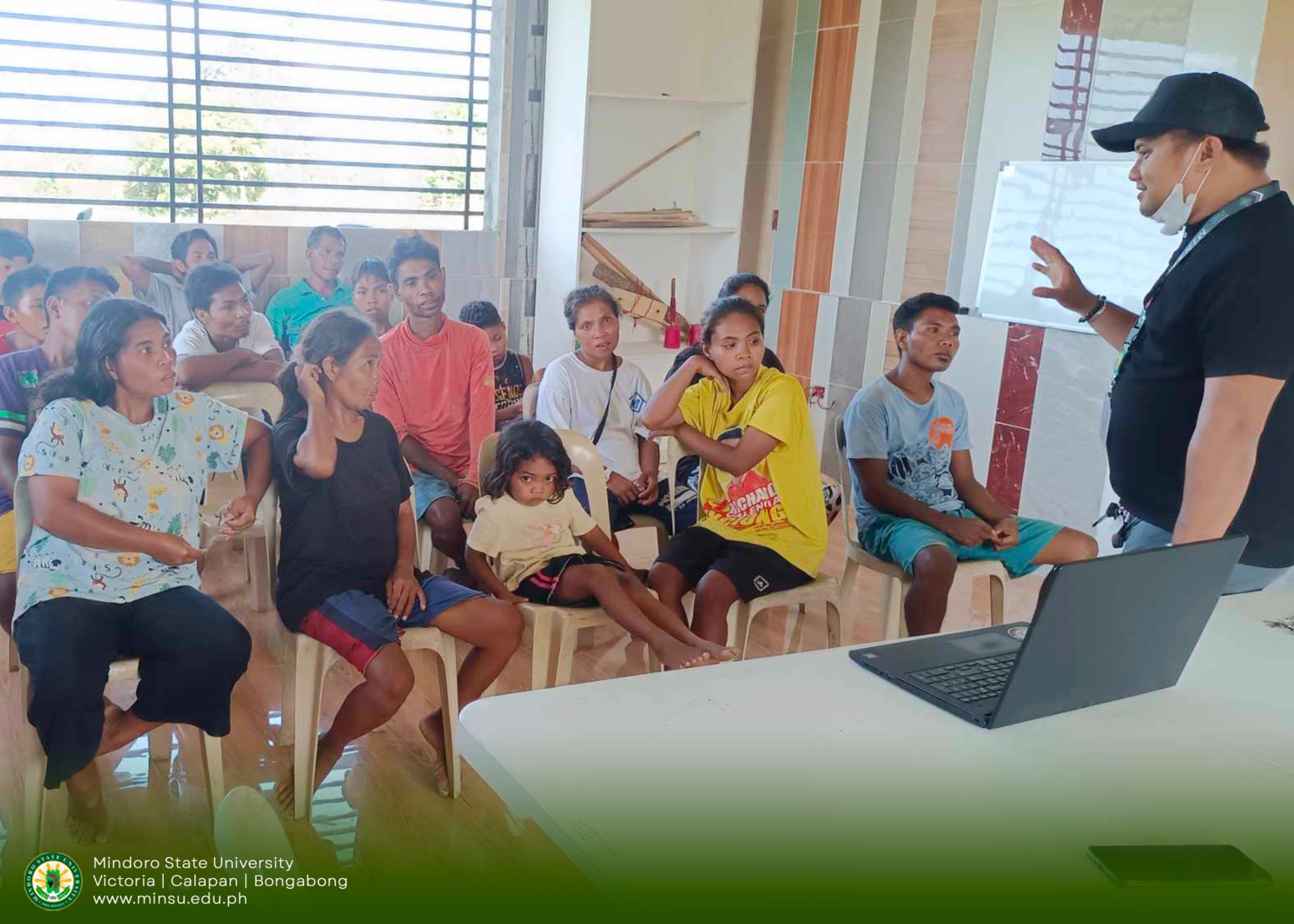
As part of its continuing effort to support Indigenous Peoples (IPs) in Mindoro, Mindoro State University (MinSU) conducted two Season-Long (SL) Trainings on Agricultural Production, both anchored in the MinSU-STC4iD Project (Science and Technology-based Community Innovation Development). Funded by the Department of Science and Technology – Philippine Council for Agriculture, Aquatic and Natural Resources Research and Development (DOST-PCAARRD), the SL trainings aim to provide Mangyan communities with practical knowledge and skills to improve their agricultural practices and enhance their self-reliance.
The first training was held on April 10, 2025, at Sitio Daya, Barangay Canaan, Victoria, Oriental Mindoro, and focused on Pakbet Vegetable Production, a method of cultivating high-value vegetables such as bitter gourd (ampalaya), eggplant (talong), okra, string beans (sitaw), squash (kalabasa), and tomatoes. These crops were selected not only for their nutritional value but also for their adaptability to the local environment and market demand.
A total of 20 Mangyan farmers participated in the training, which aimed to enhance their skills in organic and sustainable vegetable production, improve food security and nutrition, and introduce eco-friendly farming and pest management techniques. It also emphasized the promotion of community-based enterprise development through value-added products and local market integration.
Mr. Reynaldo Manalo, Science Research Specialist I and one of the resource speakers, emphasized the importance of organic farming techniques.
"By using natural methods, we not only preserve the environment but also ensure the sustainability of our agricultural practices for generations to come," Manalo said.
Alongside him, Mr. Jorge C. Gawad, Project Technical Assistant I, provided insights into integrated pest management, teaching participants how to address common pests using eco-friendly solutions. Mr. Junathaniel Umak, Administrative Aide, also supported the activity.
In addition to the hands-on training, the program encouraged participants to think beyond farming as a mere livelihood and to explore opportunities for establishing local enterprises by adding value to their produce.
"Through this program, we aim to transform not only their farms but also their local economy," Gawad said.
He also mentioned that the beneficiaries are the same individuals who are continuously being trained by MinSU to better understand agricultural practices and apply sustainable methods before being fully empowered to manage their own farms.
The second Season-Long (SL) training, which followed the same course design, was conducted on April 11, 2025, at Sitio Bungkarot, Barangay Buong Lupa. It was attended by 45 Mangyan farmers. Mr. Christian Rommel Robles, Agricultural Technologist from the Local Government Unit (LGU) of Gloria, served as the resource speaker and discussed technologies related to Pakbet Vegetable Production.
MinSU remains committed to supporting the Mangyan communities by helping them improve their farming practices and become more self-sufficient through sustainable approaches.
"Nagpapasalamat kami sa MinSU sa pagbibigay sa amin ng pansin at patuloy na pagtulong sa amin na mapaunlad ang aming pagsasaka sa pamamagitan ng makabago at tamang teknolohiya. Sa pamamagitan ng inyong pagsasanay, unti-unti naming napapaunlad ang aming mga bukirin," one of the Mangyan beneficiaries shared.
#SDG1 #SDG2 #SDG4 #SDG8 #SDG10 #SDG15 #SDG17
302 Staff
10531 Students
9 Colleges
4 Years